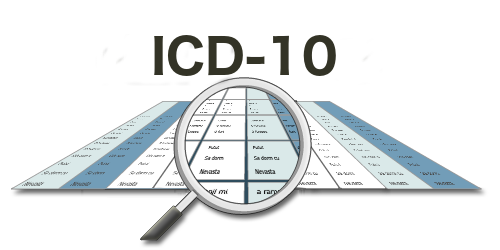Diabetes is a big health issue, affecting loads of people in the US. It's this long-term condition that needs a team approach, combining medical treatment, lifestyle tweaks, and a bit of emotional backup.
So, what's the big deal about diabetes? It's all about having too much sugar in your blood, which can lead to nasty stuff like heart disease, nerve damage, and kidney failure. That's why managing it right is so crucial.
The approach to diabetes care in the US is changing - it's now all about personalizing treatment. Nurse practitioners are leading this change by creating care plans that are just right for each person, focusing on the right meds, and lifestyle changes, and keeping an eye on blood sugar levels consistently.
Family Nurse Practitioners (FNPs), especially those with special training, are super important in this team. They blend serious medical knowledge with a caring touch, tackling all the different needs of someone with diabetes. They're all about giving personalized care and advice, really making a difference in how people handle their diabetes.
And here's where specialized education comes in. Advanced nursing programs, like the Master of Science in Nursing - Family Nurse Practitioner, are super important. They build on what nurses already know, making them pros at diabetes care. These programs, like the nurse practitioner programs in Texas, equip nurse practitioners with everything they need to handle the complex world of diabetes care. They're not just healthcare providers; they're a support system, ensuring comprehensive and empathetic patient care.
Contents
Nurse Practitioners: Superheroes of Diabetes Care:
Nurse practitioners in diabetic care are like multi-skilled heroes. They do a lot more than just give medical treatment. They're like coaches, teaching patients about managing diabetes, from checking blood sugar to picking the right foods and offering a shoulder to lean on. For instance, they help you figure out how to stick to a diet that works with your diabetes and find good exercise for you.
Revolutionizing Diabetic Care: Patient-Centered Approaches:
In managing diabetes, a comprehensive approach is emphasized, focusing on personalized care and leveraging technology. Key strategies include:
- Personalized Plans: The goal is to develop care plans that are tailored specifically to each patient. This involves looking at what the patient likes to eat, their cultural background, and physical capabilities. It's a team effort, with nurse practitioners collaborating with other healthcare professionals to design these personalized plans.
- Mental Health Support: Mental health is a crucial part of diabetic care. Nurse practitioners are there to identify any mental stress, like anxiety or depression, that might be linked to diabetes. They then connect patients with mental health professionals to address these issues.
- Technological Innovations: Modern technology plays a big role. Continuous glucose monitoring systems, mobile health applications, and telemedicine are some of the tools used to improve patient care, especially helpful for those in remote or underserved areas.
- Care Coordination: Nurse practitioners take on a central role in coordinating care. They make sure that there is seamless communication and coordination among various healthcare providers. This is vital to avoid any gaps in treatment.
- Advanced Interventions: They often use advanced techniques in diabetic care. This includes real-time monitoring of blood sugar levels using the latest technology. They collaborate closely with dietitians and endocrinologists, forming a comprehensive, multidisciplinary approach to patient care.
Nurse practitioners in diabetes management have a lot on their plate. They need to stay updated with the latest standards and practices, like those set by the American Diabetes Association (ADA). This means they're constantly learning, and adapting to new research and treatment methods. A nurse practitioner has to be in the know about the newest medications and understand how recent research impacts their care strategies. It's all about keeping up with the evolving world of diabetes care.
Real World Wins: How Diabetes Care is Changing Lives:
When it comes to diabetic care, it's a blend of using what's clinically proven and personalized treatment. Family Nurse Practitioners (FNPs) rely on evidence-based practices to tailor treatments for each patient. This approach isn't limited to medical management; it also includes educating patients and guiding them in lifestyle changes. For example, they might use motivational interviewing to help a patient adopt healthier eating habits or add more physical activity into their routine.
In their everyday practice, nurse practitioners come across various situations. Imagine a patient who’s just been diagnosed with diabetes and is trying to wrap their head around all the new information and lifestyle adjustments. An FNP might spend extra time explaining how to monitor blood sugar or simplifying their medication schedule. On the other hand, for a patient who’s been living with diabetes for years and might be overlooking the importance of regular foot exams, an FNP would not only conduct these exams but also emphasize the risks of neglecting such care.
Diabetes in the Community: Spreading Awareness, Building Support:
In managing diabetes, community programs are really important. Here's what they involve:
- Diabetes Education Programs: These are usually run by nurse practitioners and are super helpful. They teach people about managing diabetes, understanding medications, and spotting when complications might be starting. Plus, they create a supportive and friendly learning space.
- Support Groups and Peer Counseling: These groups are a big deal for those with diabetes. They offer a place to share experiences and advice, which helps in feeling less alone. Nurse practitioners often recommend these groups, showing just how important community support is in diabetes care.
- Public Health Campaigns: These campaigns are crucial for raising diabetes awareness and prevention. Nurse practitioners and other health professionals get involved to teach people about diabetes risks, how to prevent it, and why regular health checks are so important. The goal is to get everyone more informed and proactive about their health.
Managing diabetes goes beyond medical treatment. It encompasses a holistic approach incorporating tailored nutrition and exercise regimes, mental health support, advanced technology usage, and effective case management.
Community initiatives like educational classes, support groups, and health campaigns are crucial. This comprehensive strategy ensures individuals with diabetes receive not only medical care but also emotional support and knowledge for effective self-management.
Healthcare professionals, notably nurse practitioners, play a pivotal role in enhancing patient outcomes and life quality for those with diabetes through patient-centered care, ongoing education, and dedication to combating the diabetes epidemic.





